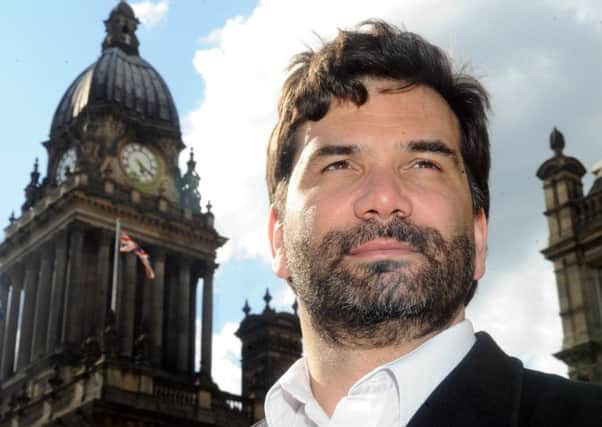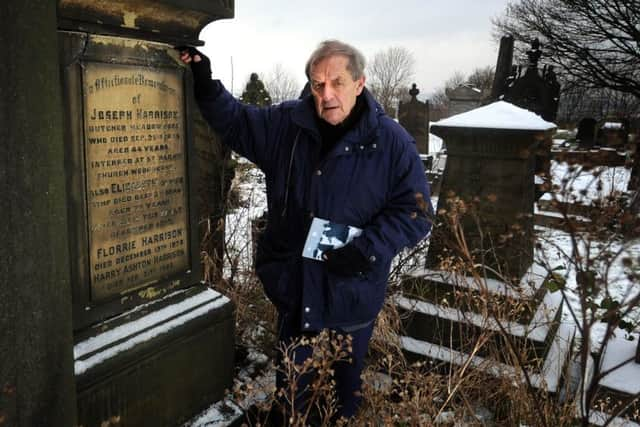Anthony Clavane: On Tony Harrison and the illuminating power of his poetry


And that’s not just any old poetry. It’s Tony Harrison.
The Bard of Beeston has a distinctive voice. It has been heard on the radio and television, and in newspapers, opera houses and theatres, for over five decades. Tomorrow it can be heard at Leeds Carriageworks, where culture vultures have been invited to “enter the dark and experience the illumination of poetry”.
You might find this a bid odd. You might even find poetry a bit odd. Poetry-phobia, like nyctophobia – fear of the dark – is a common condition.
Advertisement
Hide AdAdvertisement
Hide Ad

Some of my best friends are poetry-phobic. They are particularly allergic to the Poetry Voice. The pompous intonation, the lilting cadence, the theatrical pausing. Who talks like that in real life?
It is an unintentionally funny voice. Think Peter Sellers’ recital of A Hard Day’s Night in the style of Olivier’s Richard III. Or the Monty Python sketch in which “Peter Shilton of Leicester” – a famous goalkeeper for the football-phobes amongst you – perorates an ode to the Yangtze river.
Harrison’s voice is different. It is, despite a reputation for sonorousness, intentionally funny. He draws on the humour inherent in the tension between elite art and popular culture. In the archives at Leeds University, a biographical note describes him as having “a remarkable talent as a comedian.” He even performed sketches with fellow student Barry Cryer. If you close your eyes whilst listening to him declaiming, whether recalling his mother’s metrically ticking knitting needles in a Beeston bomb shelter or reading from his translation of Aeschylus’ Oresteia, you’ll agree his snarling, trenchant tones have a mesmerising effect.
In fact his demotic speech – the English of the pubs and streets – is an antidote to the Poetry Voice. His Yorkshire-accented adaptation of The Mysteries was influenced as much by the method, patter, timing and delivery of music hall stand-up-comedians as the Latin and Greek classics he studied. Throughout his career he has argued that poetry should be egalitarian and accessible, a voice for those struggling to make theirs heard. Literally, in the case of his two uncles, Joe and Harry. “How you became a poet’s a mystery,” his interrogator declares in Heredity. “Wherever did you get your talent from? I say: I had two uncles, one was a stammerer, the other dumb.”
Advertisement
Hide AdAdvertisement
Hide AdHarrison seeks to give a voice to the voiceless. His uncles’ inarticulacy drove him “into a passion for language and for what is still for me the supreme eloquence of poetry.” His empathy with the underdog, the marginalised and the left behind has brought him to the attention of a new generation of poetry lovers. He is on the English GCSE syllabus. Daniel Radcliffe, no less, has declared his love for Harrison’s work.
Only last week, at Leeds’s First Direct Arena, the Manic Street Preachers dedicated a song to the nation’s unofficial poet laureate; Nicky Wire called him “a very big influence on the written word in my life.”
Harrison’s is a prophetic, politically abrasive voice. In v, an expletive-laden poem prompted by Leeds United hooligans desecrating his parents’ gravestones at Holbeck cemetery, he excoriated the social divisions that, 30 years on in Brexit Britain, appear only to have hardened. He imagines an exchange with the drunken skinhead who has aerosolled graffiti on the tombstone, and ruefully reflects on society’s schisms.In a review of v the distinguished Times columnist Bernard Levin hailed his voice as “one of the most powerful, profound and haunting of modern times … a meticulously controlled yell of rage and hope combined.”
Those schisms, sadly, remain. There is still a fault-line which divides the country: between the haves and have-nots, the south and the north, elite art and popular culture. And, of course, between those content to top up their tans on a Saturday afternoon and those adventurous enough to enter the dark and experience the illuminating voice of our greatest living poet.